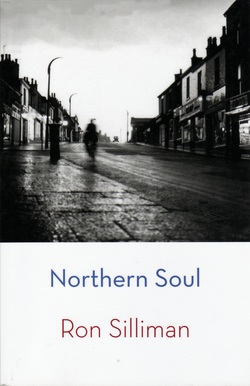
This is the second published volume, and 10th section, of Ron Silliman’s three-century 360-section writing project Universe. The first volume, Revelator, I looked at earlier this year. There is not a great deal of difference between them. Both are written in short lines – Revelator in 5-word lines, Northern Soul in lines of 1 to 5 words. They have much the same abrupt shifts in focus, and a similar number of bird sightings per line -- birds come in and out of view in these two books more frequently than people.
Silliman, like George Bowering, is an older poet very much preoccupied with aging. “What time have I left / to live this dream” he asks in this book’s final lines (78). A few pages earlier, while recalling passing his childhood home in California, he had written “what visit / will be my last / to survive is / to sneak past / all the traps / Stones in / my head sing / This may be / the last / prime the pump / as if this / ink were blood” (65). Part of priming the pump for him is to undertake this audacious 360-part multi-century poem.
The various abrupt shifts among geographic locations – London, Lancashire, New Jersey, Rome, Los Angeles, Tuscany, Delaware, Pennsylvania, San Francisco, Ottawa – some visited in recollection, some in dreams, some seemingly in the
Like the first volume, Northern Soul is billed by the publisher as “a poem of globalization and post-global poetics.” I don’t see the latter here – the poetics seem to me to be still Ron Silliman’s poetics, derived in part from Williams’ close attention to particulars for the own sake. Post-Williams, perhaps, like a lot of contemporary poetics. The “post” in the his publishers’ construction (I’ve read nothing to confirm that it is also Silliman’s) has the usual semantic problems – as in “post-feminism.” Has there ever been a “global” poetics to be “post” of? Or is Silliman’s here to be that global poetics, one that is opportunely post-globalization? But is it post only the process of globalization or post both the process and the condition? Is globalization indeed almost over?
I’m also not sure that Silliman’s project is conveying all that much about globalization – at least not yet. Sure, birds, often ones of the same species, fly in this poem in both North America and Europe. A senior and decently funded poet can travel easily and see many of them. He can dwell mentally on two continents and in numerous cities at the same time – but so too could Louis Dudek when writing his long poem Atlantis in the 1950s and 60s. Silliman can publish the various sections of Universe in different countries – while writing mainly about what he has witnessed in his home country. However, there are still 358 sections of Universe possible in which a critical engagement with the global could emerge.
FD
 RSS Feed
RSS Feed